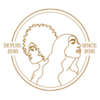March 10, 2023

By Fatima Terhini
Recently, I read a book entitled “Surviving the Workplace – Self-defense Strategies for Minority People” by Marie Dasylva. I personally found several nuggets in it that I have started to apply in my professional life, in my academic career and even in some interpersonal situations.
For this article, I had the idea to propose some of these “self-defense tips”, those that particularly appeal to me and that will not leave your interlocutors indifferent:
1- The R A C O N T E R method (Meet, Admit, Compassionate, Dare, Nasser, Expand, Repeat):
Here, the author urges us to speak out about the discriminating and hurtful situations we experience, even when these are minimized or ridiculed by the oppressor in the context. We must remember that the pain caused by these situations is valid. We have the right to claim our painful emotions and to overcome the shame they cause us by “uppercuts, jolts of love that we have left”.
2- “No more”:
“No more apologizing/no more saying thank you/no more accepting unsolicited advice/no more saying yes when we wanted to say no” in order to extricate ourselves from the posture of complacency and finally express our needs by creating the space of equity that we deserve.
3- Job interview method:
It is often tempting to hide parts of ourselves during a job interview. Especially the parts on which our future employer could attach certain depreciative prejudices. Let’s think here about our origins, our weight, our handicap etc… parts that unfortunately we can’t change. However, the author reminds us that an interview is above all a face-to-face meeting where we create our excellence from what we are, and that involves our whole person:
“Arriving in a compromised self-identity allows neither serenity nor height”.
She also insists on the fact that an interview remains an exercise in conviction and to do this, it is necessary to get rid of all false modesty:
“The competition is tough, better to shine than to blink”.
She encourages us to arrive neatly, to tell our stories, to be rational and not to hesitate to transform this interview into a work meeting where we can/should also make our interlocutor speak.
4- The 300-second rule:
300 seconds. This is the time the author gives herself during the day to think about interactions and situations that she already knows are oppressive. She tells us that if, for example, someone congratulates her on her level of French, even though she was born in Paris, she simply replies “I was born in Paris, I don’t know what makes you say that”, even though she knows very well what generates this thought. These evasive and brief answers ultimately limit the time she spends with those who want to put her back in the place she doesn’t want to be.
Of course, these four tips are just a few that are present in this incredible book of boldness, wit and generosity.
So, if you want to go further, this is a book that I highly recommend and that I believe fits totally into the objectives of the Making Your Way Up project.
SOURCES :
Dasylva, M. (2022).Survivre au taf . ( 1ère ed) De Daronnes

Fatima Terhini
Writer
Fatima Terhini describes herself as an "artivist" primarily concerned with feminist, anti-racist and decolonial issues.Her degree in psychosociology and experience in community work attest to her insatiable curiosity and love for humans, living beings and, of course, social facts. She joined Sayaspora in October 2020 as a community manager, but her love of writing and reading steered her a year later towards the blog, where she holds the position of co-editor-in-chief.


